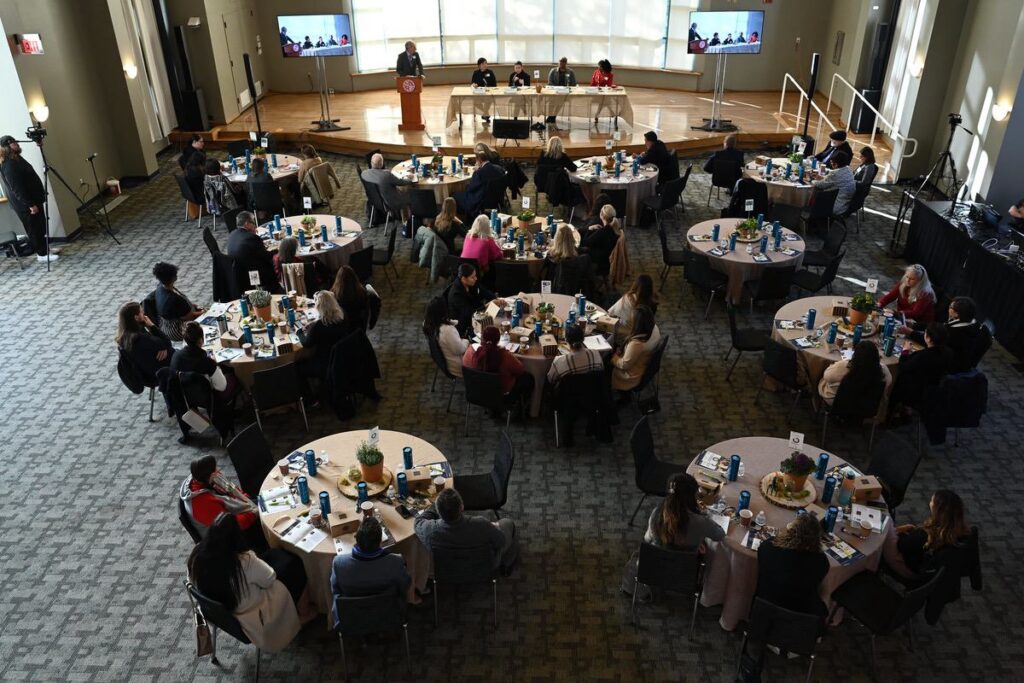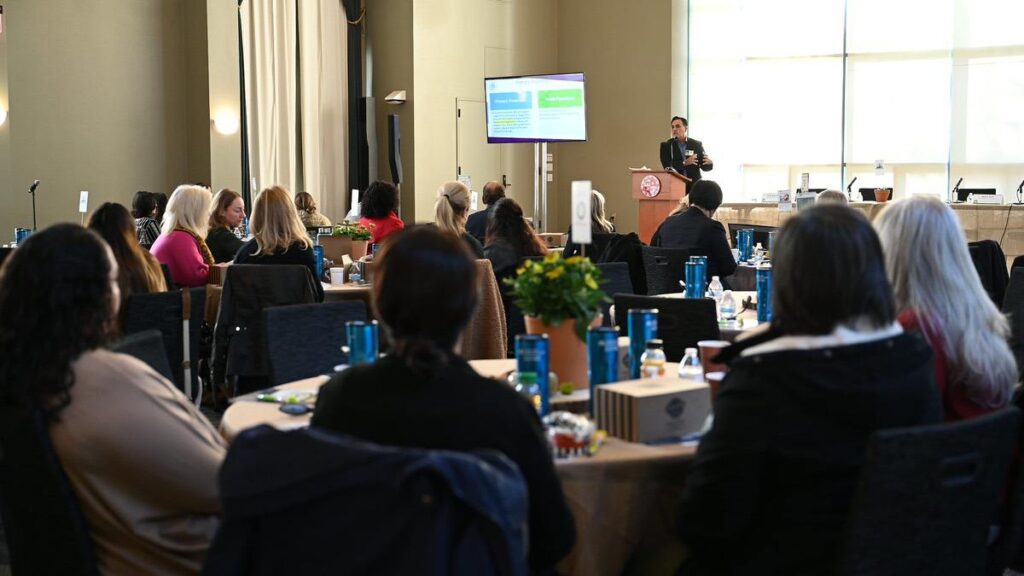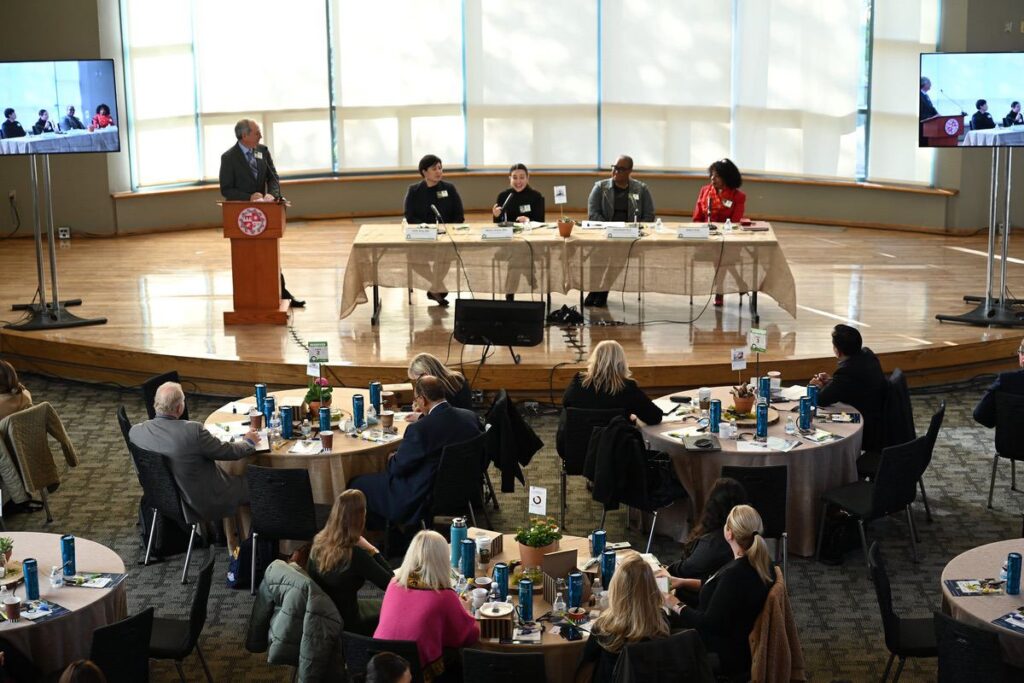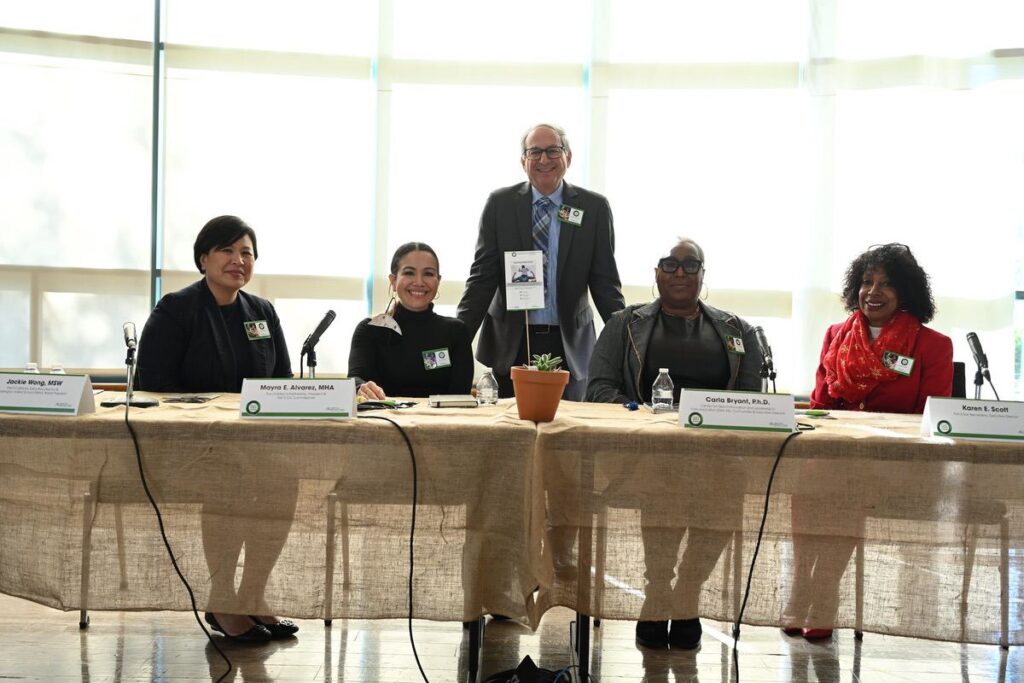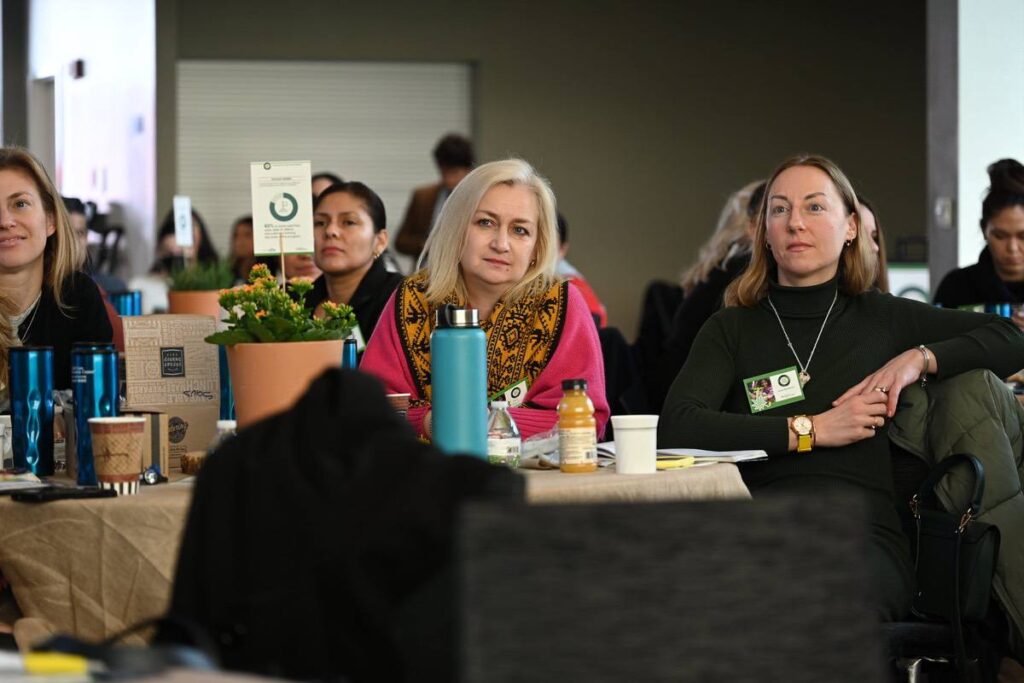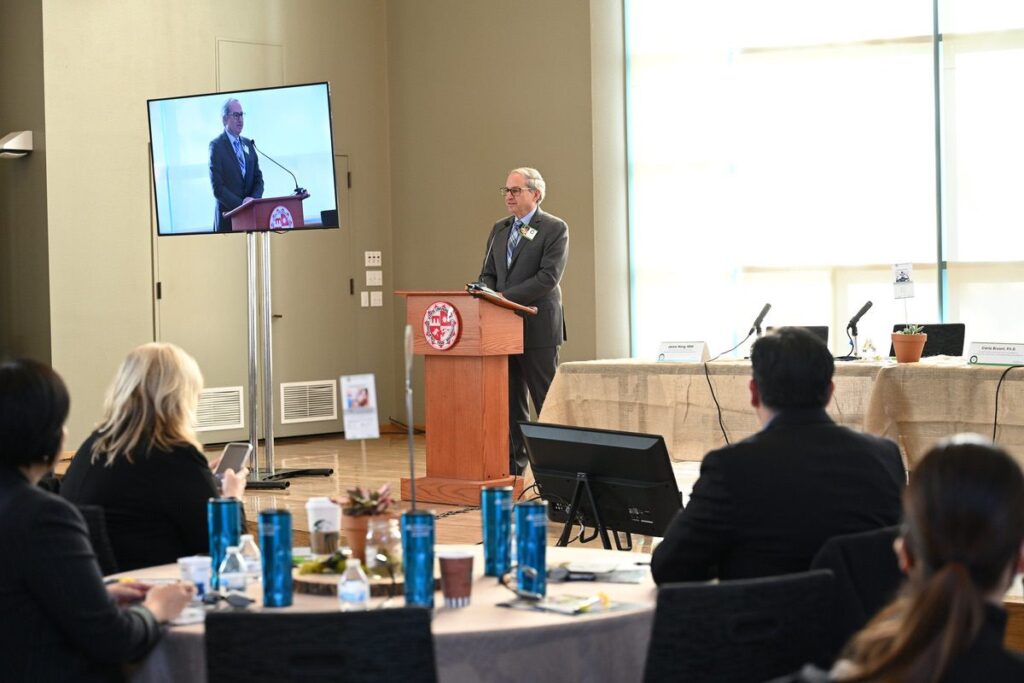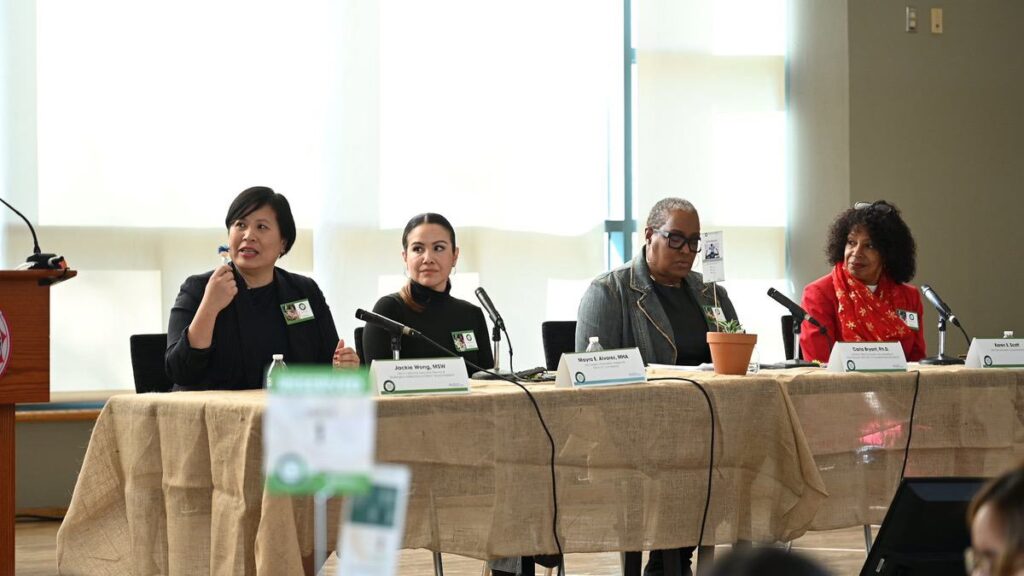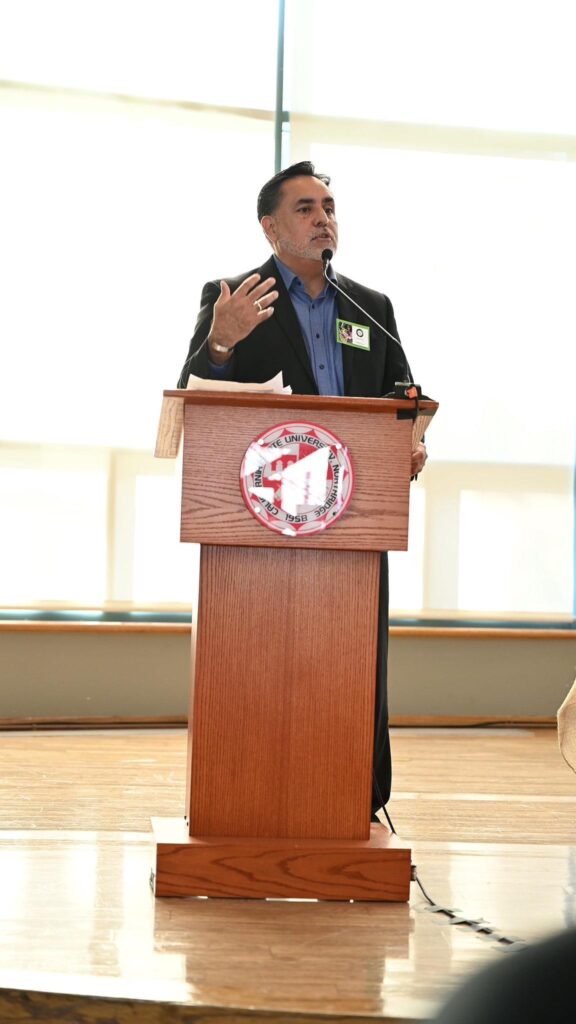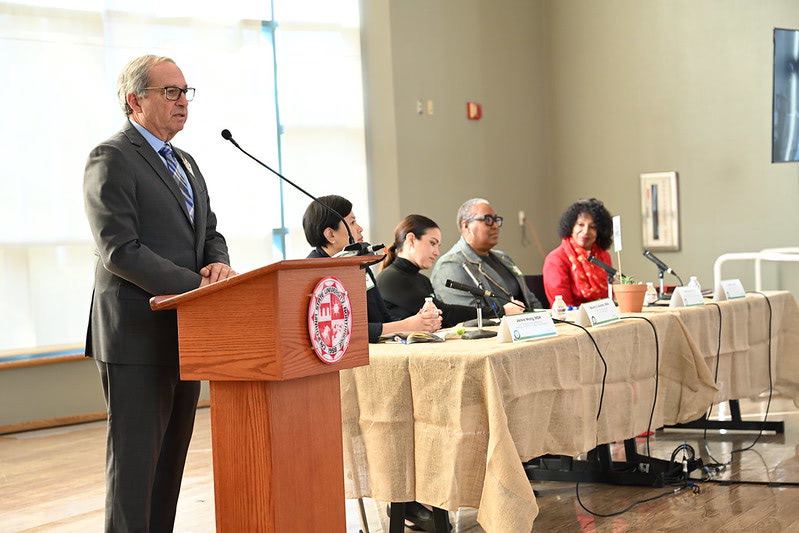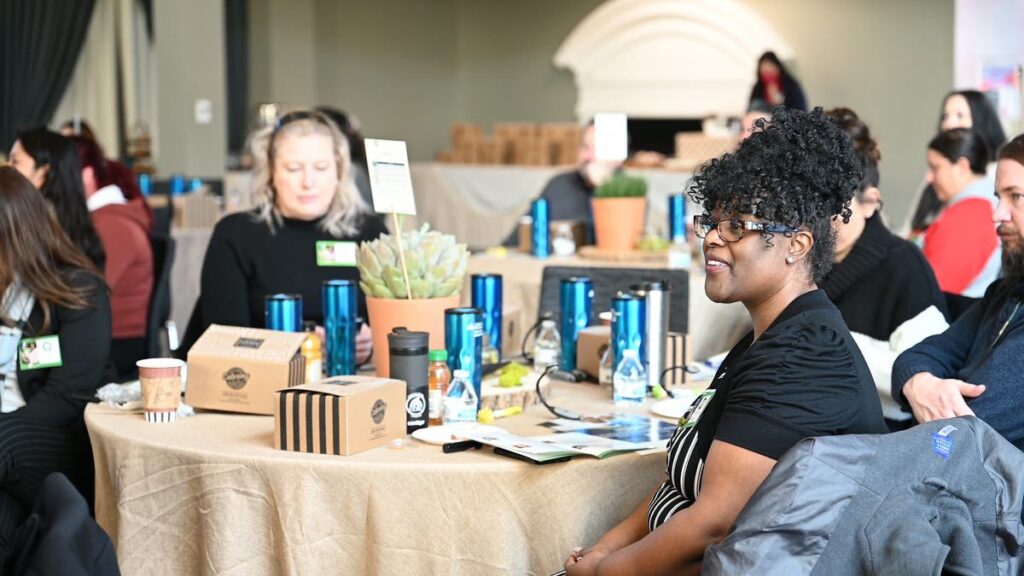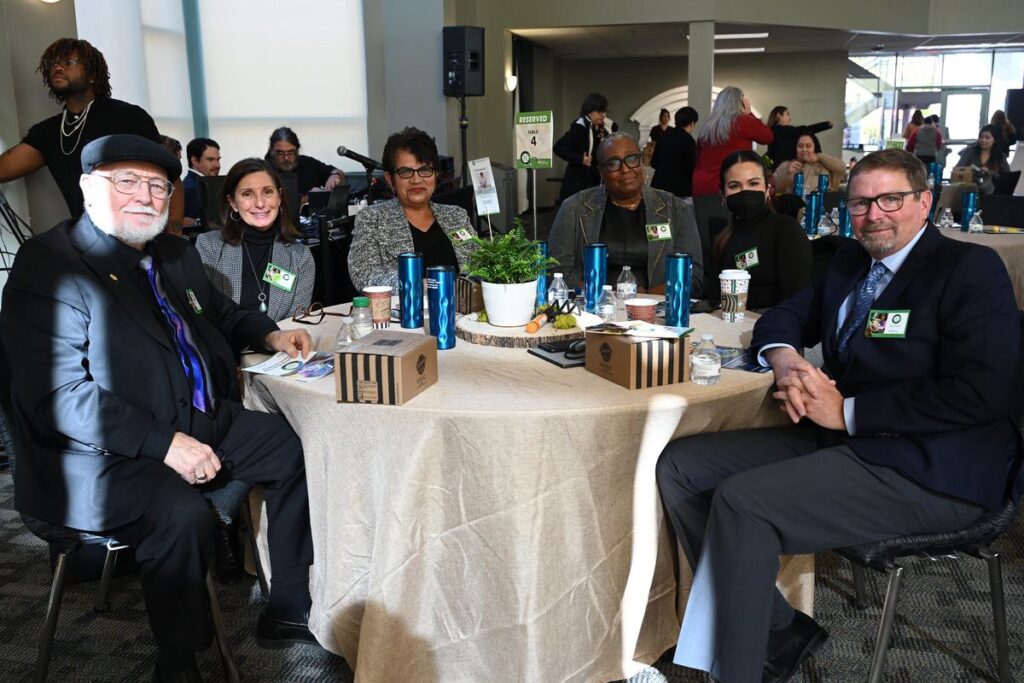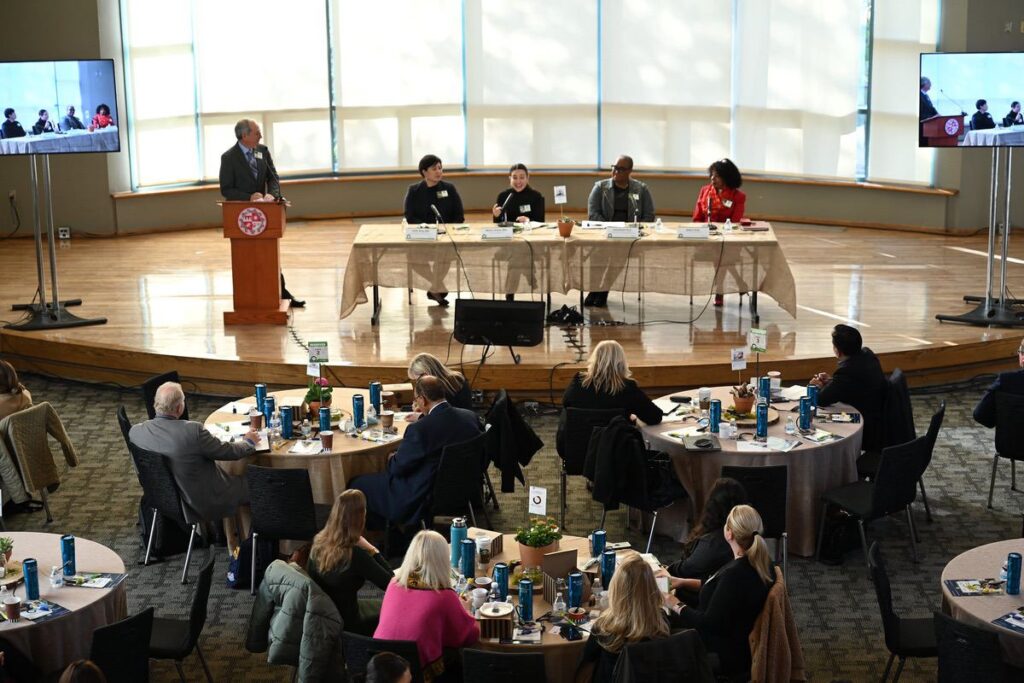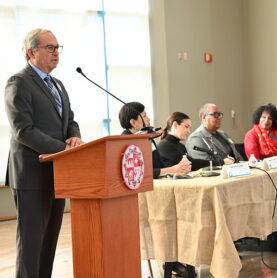Systemic issues, siloed resources, and limited prevention efforts were three key focal points of CCRC’s Policy Forum discussion on Friday. Experts in early learning and care presented innovative approaches to whole child and family well-being, the theme of this year’s forum.
The forum was held at California State University Northridge, as well as online, and featured four panelists: Children’s Partnership President Mayra E. Alvarez, Center for District Innovation and Leadership in Early Education Co-Founder & Executive Director Carla Bryant, PH.D., First 5 San Bernardino Executive Director Karen E. Scott, and First 5 California Executive Director Jackie Wong MSW. Moderated by CCRC President & CEO Dr. Michael Olenick, the panel discussed issues most critical to parents, child care providers, and advocates.
A metaphor used throughout the forum characterized the cultivation of child and family well-being as a plant that requires healthy soil, water, sun, and care. “It takes a lot of time to plant seeds that will grow. You have to break the hard ground to find the fertile ground underneath,” said Wong.
Panelists agreed that building a nurturing environment requires a paradigm shift.
“We need to flip this script. All our policies are about measuring how well people do things but we have not really talked about is providing the skill sets so people can do those things,” asked Bryant. “Why do we put the burden of what the system has created on the victims? We need to rethink some of this. We don’t have poor families; we have under-resourced communities. When we say “poor families,” that makes us focus on what we think the issue is: a poor family. But if we instead talk about an under resourced community, it instead helps us put the focus on how we build that community to do the work to support families in the appropriate way.”
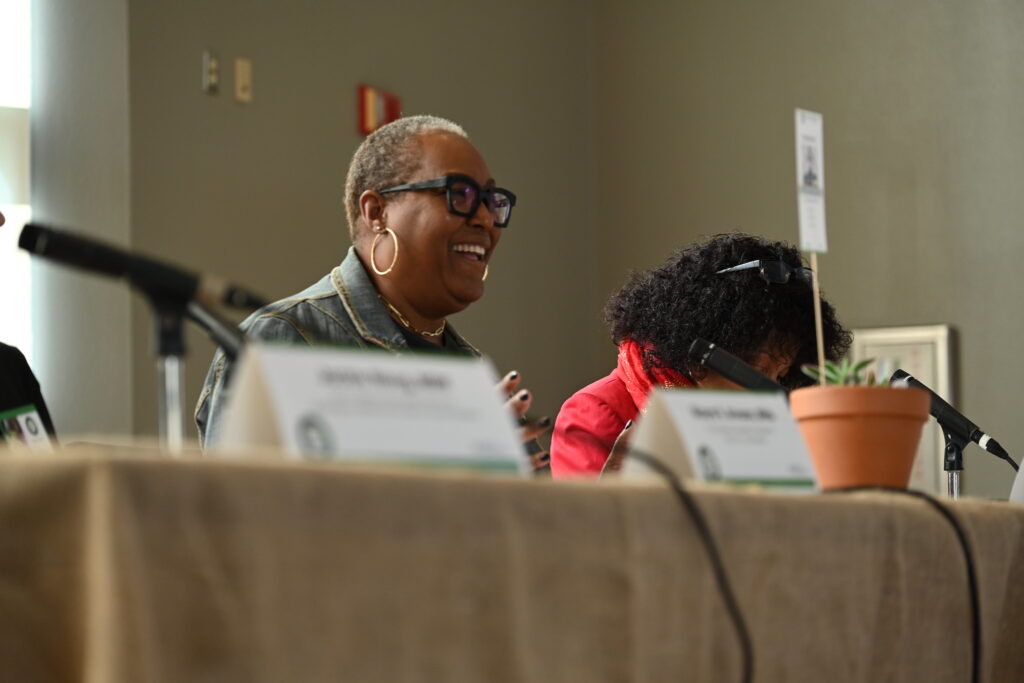
Bryant argued that instead of judging families for the challenges they face, our community leaders should develop solutions to these problems.
“Do they make enough money at their job? Are they dealing with environmental pollutants in their community?” Alvarez asked. “That fight for a living wage has just as much impact on a family’s ability to raise a healthy child as access to child care does. There are these intersecting fights that very easily get siloed and divided.”
“The roadmap that guides our work is whole child, whole family and whole community – it takes all of it. We need to talk to families,” said Scott. “We can’t be sitting in our ivory tower telling others we know what you need… I think we need to look at systems building as something that’s going to affect those outcomes.”
Another factor Alvarez noted in the ability of families to excel is health.
“When half of our California children have an immigrant parent, immigration is a health issue,” said Alvarez. “Dismantling systemic racism is really not doing things the way we’ve always done them… By thinking creatively about these more mandatory funding streams and really exploring what the healthcare system can do to take a more population health approach, there is promise for what we’ve started to see these last few years for children and families.”
Panelists called on child care providers to speak with families to better understand these challenges and to elevate these issues to school districts. “Child care providers, you have some power, you have families. Sit with them and think through all the things that you need, they need,” said Bryant. “Present yourself to the district. You go with strength, you tell school district ‘You have an opportunity here, an opportunity to create a partnership with this community but this is what I need to make it happen.’ And you be very clear about the resources you need… I’m telling you, they need you.”
The opportunity extends to advocacy groups and organizations, who Wong called on to collaborate.
“The opportunity before us doesn’t stop with funding – partnerships matter,” Wong said. “Meet the moment right now, work from a space of abundance, not scarcity. Change and disrupt the infrastructure.”
To watch the full policy forum recording, click here.
